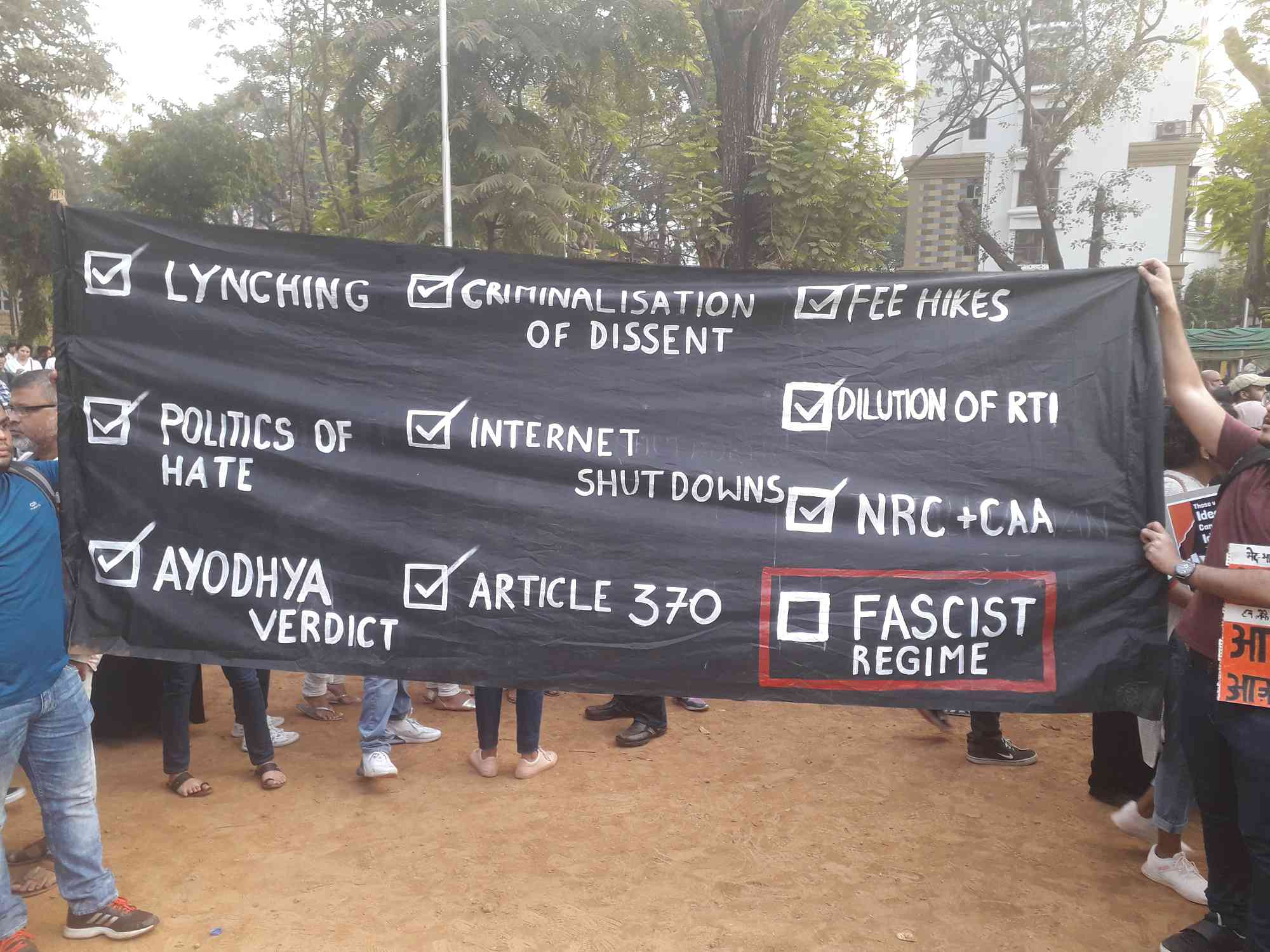‘It’s now or never’: Why young, urban Indian Muslims plunged into the anti-Citizenship Act protests
Rehan Sheikh had been disturbed by the prospect of a nationwide National Register for Citizens since April when he first heard Indian Home Minister Amit Shah announce plans to bring in the Citizenship Amendment Bill. Addressing a public meeting then, Shah said the legislation would grant citizenship to non-Muslim refugees from Bangladesh, Pakistan and Afghanistan, and then flush out “infiltrators” through the NRC.
In the following months, as the NRC was implemented in Assam and the ruling Bharatiya Janata Party government became more vocal about a nationwide citizenship register, Sheikh realised how closely it was linked to the passing of the Citizenship Amendment Bill.
Yet, when the Bill was passed by Parliament and became an official Act on December 12, Sheikh was taken by surprise. “It happened so suddenly,” said Sheikh, a 30-year-old investment advisor working with a bank in Mumbai. “I always knew this was going to be a dangerous law, but I did not expect to be passed so quickly after they tabled it in Parliament.”
Since then, like almost every other Muslim he knows, Sheikh has been brimming with feelings of anger, indignation, dread and a sense of urgency. These feelings have intensified after December 15, when the Delhi police unleashed an unprovoked assault on students of Jamia Milia Islamia University in Delhi, and students around the country began to protest in response.
For young, urban, middle-class Muslims like Sheikh, who had been more invested in their community’s educational and economic development than politics, the Citizenship Amendment Act and the police crackdown on protests have been an eye-opening jolt.
“We have been silent about a lot of things for the sake of peace, including the Supreme Court verdict about the Babri Masjid,” said Sheikh, referring to the court’s decision on November 9 to hand over the disputed land in Ayodhya to the Hindu side. “But now it is a question of our very existence in this country. We have to speak out now.”

‘I cannot believe this is happening’
This “now or never” sentiment was palpable at Mumbai’s August Kranti Maidan on Thursday, when thousands of people across communities turned up to protest the Citizenship Amendment Act. Several protesters had never considered stepping out on the streets to raise slogans before, but now, for the first time, they felt compelled to raise their voices.
“My family has never been interested in politics before,” said Alam Khan, a travel agent in his 30s. “My wife did not watch the news even when the Ayodhya verdict came out or when Article 370 was removed [in Jammu and Kashmir].”
“But this time our community is directly being targeted, so many of my family members wanted to protest,” he said.

Khan’s personal desire to be vocal is rooted in both fear for his community and a rising sense of patriotism. “Muslims from my grandparents’ generation were not literate enough to preserve documents. How will people like us show proof of residence in India from the 1950s and 70s?” he said. “I cannot believe this is happening in my country – we cannot let it happen.”
Firdos Farooqui, a medical doctor from South Mumbai, said that the protest at August Kranti Maidan was only the second time she ever felt the need to participate in a public agitation. “I had protested triple talaq last year because it is an un-Islamic practice, and now I am protesting CAA and NRC because they are against India,” she said. “I did not expect that the law would be passed so easily, without much opposition in the Parliament.”
Like Farooqui, Farzana Khan, who had travelled for the protest all the way from the northern suburb of Mira Road, was also rattled by the idea of Indian Muslims being asked to prove their citizenship. “My father was a freedom fighter who won medals for this country,” she said. “What more do I need to prove?”

Wearing religion on one’s sleeve
According to 39-year-old Javed Sayed, it is the support of non-Muslim Indians that helped Muslims across the country to step out in large numbers and protest visibly in public.
“I think Muslims had resigned themselves to a lot of injustice towards the community, so there were hardly any protests against NRC in these last few months,” said Sayed, a graphic designer from Mumbai. “But after CAA [Citizenship Amendment Act] was passed, when so many non-Muslims came out to speak for us and to support the students of Jamia, we found it easier to protest.”

Indian Muslims’ discomfort with public dissent is rooted in a history of bitter experiences with street protests, particularly since the demolition of the Babri Masjid in 1992. But some Muslims are now ready to discard the past and take control of their narratives.
Journalist Humaira Ansari, for instance, said that after the Citizenship Amendment Act was passed, she decided to “stop giving a damn” about how other people perceive her political stances.
“Earlier, whenever there were terror attacks and Muslim groups went out of their way to condemn the violence, I always felt uncomfortable about it,” she said. “I always questioned, why should we have to do it? Why should I have to wear my religion on my sleeve?”
Ansari, 33, has had sleepless nights since the Act was passed. “Now I feel it is time for us to embrace our religion, to step out and say yes, I am a Muslim and I have a problem with the way Muslims are mistreated and targeted in this country.”
Header image: Protesters hold placards at a demonstration against the Citizenship Amendment Act in Mumbai on December 19. — Punit Paranjpe/AFP
This article originally appeared at Scroll.in and has been reproduced with permission.






